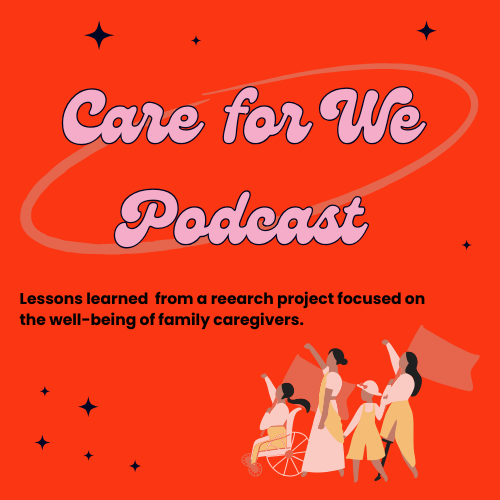Consulting
As the late First Lady Rosalyn Carter said, “There are only four kinds of people in the world: those who have been caregivers, those who are currently caregivers, those who will be caregivers and those who will need caregivers.” My advice is to plan now so you don’t have to worry later. I offer a variety of consulting services including public speaking based on my personal experience, training and my graduate research. I first and foremost offer compassion and aim to meet you where you are at in your caregiving journey. Whether you desire 1:1, family or group support my goal is to help people feel more confident with their caregiving experiences. My offerings include but are not limited to:
Effective care plans
Advocating for care with and without insurance
Managing family dynamics
Accessing community resources
Addressing financial considerations
Self and Community Care (ie. Self-Compassion and Mindfulness practices)
Local and national policy reviews and education (how these policy impact you)
Care For We Initiative
Mission Statement
Care For We is dedicated to empowering and supporting family caregivers through comprehensive advocacy for policy changes and community support. Our mission is to enhance the quality of life for caregivers by advocating for meaningful policies and fostering community-driven support systems where individuals can access resources, share experiences, and find guidance in their caregiving journey. We strive to foster a culture of collaboration and resilience, ensuring that no caregiver feels alone in their role.
Why Care For We?
The name Care For We is intentional. It reflects a communal understanding of caregiving—not as something that happens to an individual, but as a shared experience that ripples through families, communities, and systems.
In a culture that often frames care as “Care For Me,” we’re flipping the lens. Because caregiving is never just about one person. It involves:
The care recipient
The family caregivers
Friends and neighbors
Healthcare providers, educators, and social workers
The broader community and systems that either support or overlook these roles
Care For We is about communalizing caregiving—making it visible, valued, and collectively supported. It’s about acknowledging that caregiving is a shared human experience that requires shared responsibility, empathy, and action.
When we say Care For We, we’re naming a deeper truth:
We all belong to the care.
1. Objectives
1.1. Policy Advocacy:
Advocate for policies that improve support for family caregivers, including financial assistance, respite care, and workplace accommodations.
Promote legislation that ensures access to essential resources and services for ALL caregivers and care recipients.
Why Policy Matters
And yet, our policies rarely reflect that reality.
Family caregivers often receive no pay, no leave, and no protections.
Healthcare systems are fragmented, placing the burden of coordination on exhausted family members.
Schools and workplaces often lack accommodations or awareness for those balancing care responsibilities.
When caregiving is unsupported, we all feel the consequences:
Burned-out employees and teachers
Rising healthcare costs due to preventable crises
Generational strain on mental and financial wellbeing
Loss of equity for women, disabled people, and people of color—who disproportionately bear the burden
This is why Care For We exists:
To reframe caregiving as a public concern, not a private burden.
To advocate for policies, culture, and community supports that recognize caregiving as essential infrastructure.Because in the end, caregiving isn’t a side issue.
It’s the hidden engine of our families, our communities, and our economy.
1.2. Community Support:
Develop and promote community programs that offer practical support, including caregiver support groups and educational resources.
Raise awareness about the challenges faced by family caregivers and build a network of support within communities through scholarly community-based, action-orientated research and dissemination.
Rely on narrative storytelling to foster compassion of lived experiences of care partners affected by specific issues, making it easier for audiences to understand the emotional and practical impacts of policies or social problems.
1.3. Resource Development:
Create and disseminate resources that provide information, tools, and strategies for effective caregiving and self-care.
Partner with organizations to develop wellbeing and advocacy programs and workshops for caregivers.
*The Care For We podcast will be debuting in May 2025! We would like to thank our sponsors and donators for making this possible! Sponsors listed below:

